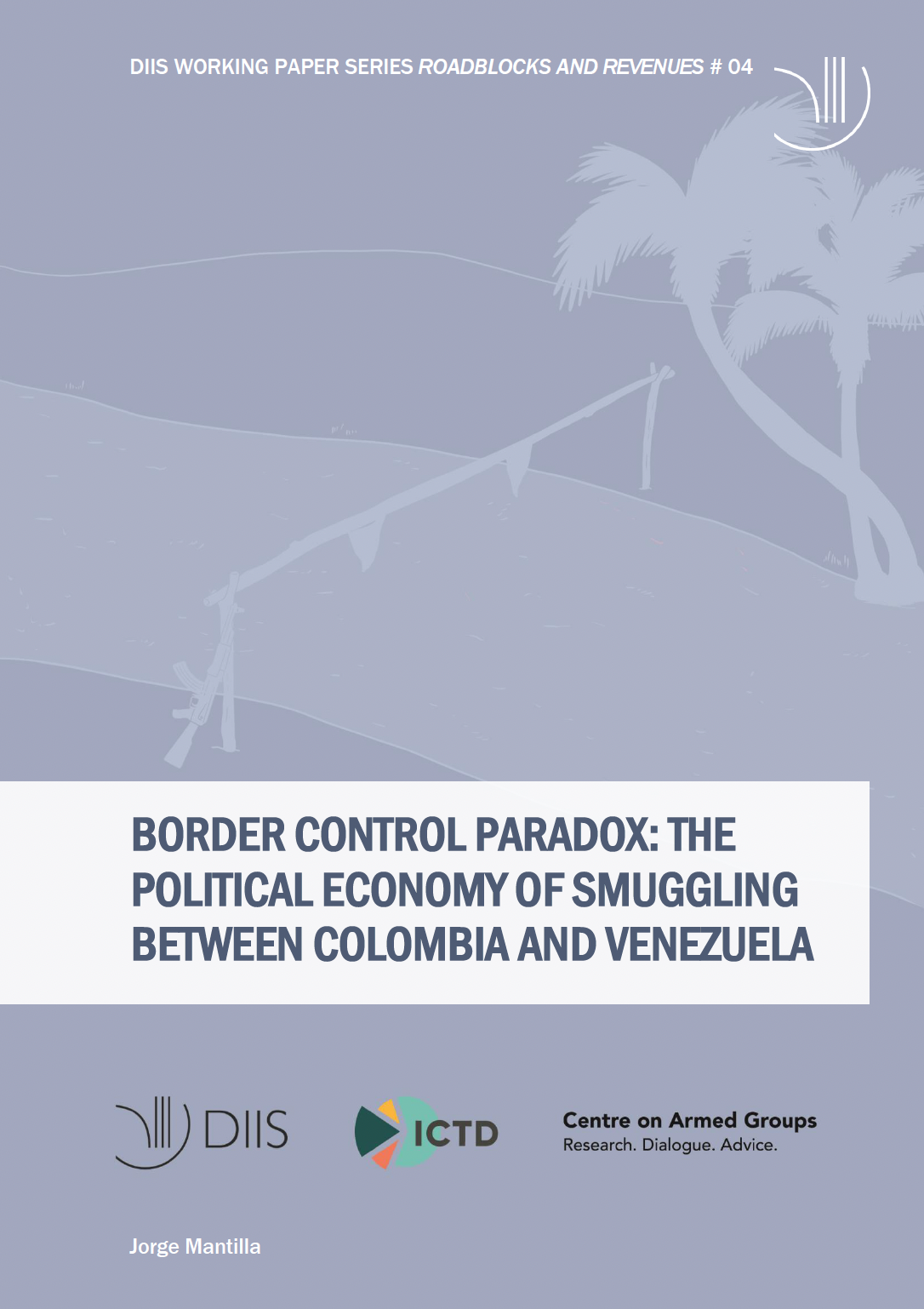Border control paradox: The political economy of smuggling between Colombia and Venezuela
Roadblocks & Revenues Working Paper Series #04
In this working paper, Jorge Mantilla explores state-criminal cooperation in roadblock politics. His study discusses the way in which, between 2015 and 2023, the bilateral tensions and border closure between Colombia and Venezuela created a political economy of smuggling in which state officials delegated basic state functions to organised crime groups to contain foes, domesticate illegal economies, and maintain social control. Mantilla shows that the fundamentals of this political economy are negotiated mobility instances taking place at checkpoints deployed in the multiple informal trails along the borderland where smugglers, organised crime groups, and state officials interact.
This paper is the fourth in a new working paper series on Roadblocks and Revenues, a collaboration between the Danish Institute for International Studies, the International Centre for Tax and Development and the Centre on Armed Groups.

